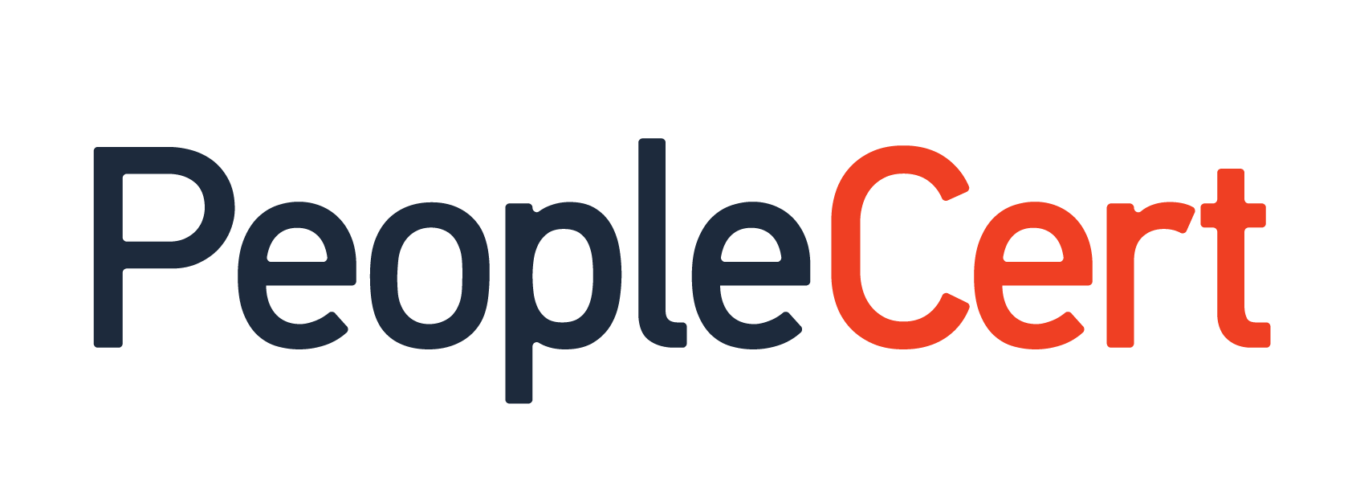Generation Z has now firmly entered the job market. At the same time, older age groups are continuing their professional careers, and even the oldest Baby Boomers are not expected to retire any time soon. This means that all “generations” of employees need to find ways to work together in order to enable their organizations to grow dynamically and respond effectively to the challenges of an ever-changing world. Unfortunately, finding a common language is proving more difficult than one might expect. This is largely due to the stark contrast between the youngest employees’ attitudes toward work and the expectations of their older-generation managers. However, while Generation Z's approach may require a shift in leadership mindset, it can also bring positive surprises. Different generations can, without a doubt, find common ground and form cohesive, high-performing teams—but they need support. One powerful tool that can help bridge generational differences is a project-based approach, which offers a practical way to address the challenges organizations are facing today.
The characteristics of generations on the Polish job market – Baby Boomers, X, Y, and Z in one team
Two years ago, the Polish Agency for Enterprise Development highlighted an interesting phenomenon on the Polish labor market – the presence of four generations of employees working side by side. Baby Boomers, born between 1946 and 1964, are approaching retirement age. They value stability and good relationships with colleagues, while also recognizing the growing role of digitalization in all areas of life. Generation X includes people born between 1965 and 1980. Although job security is important to them, they are open to changing employers. Generation Y, also known as Millennials, were born between 1981 and 1990 (or 1997, depending on the source). They are generally unafraid of developing new skills or making career changes, but they tend to prioritize their private lives. “This is the group that pays the least attention to relationships with their superiors.” Generation Z is the newest to enter the job market. Surrounded by technology from an early age, they feel at ease in the digital world. “They are characterized by ambition and openness to the world.” Interestingly, data shows that younger employees are more likely to be promoted and receive salary increases.
Demographics don’t lie – we need intergenerational dialogue
According to data from the OECD (Organisation for Economic Co-operation and Development), in 2024 there were over 16.5 million people aged 15–24 employed in the European Union, nearly 144.5 million aged 25–54, and around 40.5 million aged 55–64. The number of employed individuals has been steadily increasing across all age groups over the past five years. Similar employment proportions and trends can also be observed across all OECD countries. Over time, members of Generation Z will transition from the youngest to the middle age group. By 2030, they are expected to account for one-third of the global workforce. Understanding the motivations and behavior of this youngest generation of employees is therefore key to maintaining and improving organizational productivity.
At the same time, we must consider another trend that is reshaping society on national, European, and even global levels. While the global population is projected to keep growing until the end of this century, humanity is also aging. By 2050, there will be more people aged 65+ than those aged 15–24. This will have a significant impact on the labor market. By the end of this decade, approximately 150 million jobs will be held by people aged 55 and older. “A declining population and improved quality of life are leading to an aging society and a shrinking share of the workforce. One of the key solutions to the deepening labor shortage is implementing diversity policies in companies and activating the older generation on a much larger scale than we’re seeing today. It’s worth remembering that the 50+ group is not only growing but—contrary to common belief—is still open to professional challenges and eager to share valuable experience with the community,” explains Ewa Michalska, Director of Regulatory Services at Grafton Recruitment.
It is therefore highly likely that all four generations will remain on the labor market for a long time. The challenges of intergenerational understanding are not going away any time soon. Tensions between generations are natural and have always existed in the business world. However, the large-scale entry of a new generation into the workforce can bring particularly intense difficulties in achieving effective communication and collaboration. The ManpowerGroup® report published on February 4, 2025, highlights serious challenges in integrating Generation Z into the labor market. Forty percent of business leaders claim that members of this generation are not adequately prepared for work. Moreover, 88% of these leaders believe that this issue is becoming increasingly relevant with each passing year. Globally, 70% of managers pointed to poor work ethic as the primary reason for young people’s lack of preparedness. This significant level of employer “disappointment” with the youngest generation suggests that intergenerational understanding is in a poor state. But is the problem truly with Generation Z—or rather with outdated employee management models that fail to meet the needs of today’s youngest workers?
What motivates the youngest employees? The voice of Generation Z
Recent research commissioned by Pracuj.pl offers insight into the professional lives of Generation Z. The findings of the survey "What benefits attract the youngest employees?” are particularly revealing. More than half of respondents aged 18–24 (52%) pointed to flexible working hours as a key factor, while nearly half (49%) highlighted additional days off. These results were significantly higher compared to the overall sample. Compared to older age groups, younger employees also place more importance on employer-funded training and courses (46%), the ability to work remotely or in a hybrid model (45%), and access to affordable meals and a kitchen at the workplace (37%).
Additional generational differences can be seen in the greater importance that older employees place on medical care and life insurance, whereas the youngest generation tends to prioritize discount cards, access to sports programs, and psychological support. The latter is considered important only to a limited extent by older employees.
Secondly, young employees are looking for opportunities to gain knowledge and develop new skills. This was cited as an important benefit by 44% of respondents, whereas only 30% of employers considered it significant. However, the report’s authors note that Generation Z often expects different forms of training than those traditionally offered in most organizations. Another interesting conclusion relates to communication and collaboration. Young employees rate intergenerational relations in these areas more positively than older colleagues. Specifically, 72% and 71% of younger employees gave favorable responses, compared to just 63% and 57% among older workers. Still, these results don’t suggest a particularly difficult situation. Rather, they highlight that older employees tend to struggle more with letting go of established habits. This connects closely with the fourth insight from the report. Young employees greatly appreciate the experience and knowledge of their older colleagues (77%), but at the same time, they expect respect and positive relationships at work. For them, this means being treated equally. They are put off by being treated like children (65%) and by condescending attitudes from older employees (39%). Additionally, 64% of young workers observe a lack of openness to change among older generations—changes which, as we’ll discuss further below, are not only inevitable but also naturally aligned with the strengths of the youngest workforce.
Intergenerational project teams as a response to the challenges of today’s labor market
The findings presented above highlight significant differences in Generation Z’s attitudes compared to older generations. At the same time, we’ve already pointed out the broader distinctions among the four major age groups currently present in the workforce. According to experts cited in the ManpowerGroup® report, “a lack of deep understanding of the needs of all employees, as well as their strengths and weaknesses, often leads to a decline in team performance, which quickly and noticeably affects the overall outcomes of entire organizations.” This underscores the need for tools that allow organizations to accurately assess the competencies and abilities of all employees and to bring them together into cohesive, high-performing teams. A project-based approach to work can support this process, as it is inherently designed to form interdisciplinary, diverse, and temporary teams.
Moreover, the project-based approach is well aligned with the fast pace of change in today’s world—changes that all businesses and institutions must address. The Project Management Institute (PMI®) Global Project Management Job Trends: Insights for 2024 report, published on May 14, 2024, outlines priorities identified in the 2023 PMI Annual Global Survey on Project Management. In 2023, 40% of organizations worldwide cited digital transformation as their top priority, while 34% prioritized the implementation of new technologies. A new organizational strategy was a focus for 36%, and 33% concentrated on expanding into new markets. Meanwhile, 30% emphasized the importance of developing new products. Also listed among key organizational priorities were upskilling employees and fostering a learning culture (27%) and developing a culture of employee engagement (19%). It’s worth noting that modern digital technologies are the natural environment for Generation Z. In organizations undergoing digital transformation, the youngest employees could serve as guides for older generations. But the question remains: can we expect them to be willing to step into such a role?
Future competencies and technological challenges – how a project-based approach can integrate generations
Another study commissioned by Pracuj.pl, “Future Skills from the Perspective of the Youngest Employees”, offers promising insights. It identified five key professional competencies according to Generation Z. More than half of respondents aged 18–24 (54%) indicated that soft skills—such as empathy, communication, and effective teamwork—would be essential to their future careers. In second place (37%) were specialist skills, particularly those developed through industry-specific courses and training. Interestingly, formal education in a specific field ranked only fourth (32%), following foreign language proficiency (35%).
Surprisingly, digital competencies - such as proficiency in software, digital tools, and the use of AI - came in fifth. This may suggest an awareness of how quickly knowledge in this area becomes outdated. It might also reflect the fact that, for Generation Z, digital fluency is such an integral part of daily life that they are less likely to perceive it as a distinct professional skill. Let’s return to the broader trends shaping the business landscape. The World Economic Forum’s “Future of Jobs Report 2025”, published on January 7, 2025, outlines five key factors currently influencing the labor market. We are living in a time of global uncertainty and a shift away from free trade. Technological advancement and the green transition have become deeply embedded in everyday reality. We are also witnessing the previously discussed demographic shifts in the workforce. Additionally, it’s important to consider what employers worldwide expect in terms of technological transformation - a top organizational priority.
According to the report, 86% of employers anticipate changes related to the use of artificial intelligence and data-processing technologies such as big data. 58% point to the implementation of robotics and autonomous systems. 41% highlight developments in energy production, storage, and distribution. Other areas cited include: new materials and composites (30%), semiconductors and computing technologies (20%), optical and laser technologies (18%), quantum technology and encryption (12%), biotechnology (11%), and space technologies, including satellites (9%). It would be irresponsible to claim that digital fluency alone—natural to Generation Z—is sufficient to address all of these technological areas. The experience and knowledge of older employees remain indispensable. We must therefore find a way to collaborate effectively, drawing on the strengths of all generations without losing valuable expertise. Young employees are open to cooperation and eager to build understanding—but on equal terms. They expect a seat at the table and are unwilling to accept being cast in the role of “juniors”—a label that Baby Boomers and Generation X employees may be inclined to apply, having started their own careers from such positions. However, the world is evolving rapidly, including in this regard. These changes pose major challenges for organizations operating in traditional models with rigid, hierarchical structures. Yet even in such organizations, the project-based approach mentioned earlier may serve as a “key” to unlocking the potential of intergenerational collaboration.
New roles, new perspectives – the power of the project-based approach
Forming a project team—where temporary roles do not necessarily reflect one’s position in the organization’s permanent hierarchy—can help break employees out of their usual routines and entrenched ways of working. It can serve as a useful “excuse” to adopt a new perspective and allow for behaviors that go beyond the standard patterns. Creating the right conditions for this kind of “excuse” to emerge effectively requires attentiveness, tact, and genuine care for individual team members. As the experts at Hays Poland noted in the aforementioned report: In order for employees to develop successfully within an organization—and for employers to benefit from productive, satisfied teams—regular conversations, employee feedback, and managerial openness to initiatives from subordinates are essential. All of these elements are inherent in the project-based approach recommended by the Project Management Institute (PMI®). We hope you’ll join us in exploring its potential.
Article written by:
Maciej Krupa PMP® (Project Manager, Senior Expert)
[1] PARP, Cztery pokolenia na polskim rynku pracy, https://www.parp.gov.pl/component/content/article/83979:cztery-pokolenia-na-polskim-rynku-pracy;
[2] OECD Data Explorer, Employed population by age groups, https://data-explorer.oecd.org/vis?lc=en&df[ds]=dsDisseminateFinalDMZ&df[id]=DSD_LFS%40DF_IALFS_EMP_Q&df[ag]=OECD.SDD.TPS&dq=.EMP.._Z.Y._T.Y15T64..Q&lom=LASTNPERIODS&lo=7&to[TIME_PERIOD]=false;
[3] United Nations, Shifting demographics, https://www.un.org/en/un75/shifting-demographics;
[4] Root, J., Schwedel, A., Haslett, M., et al. (2024). Better with age: The rising importance of older workers. Bain & Company, https://www.bain.com/insights/better-with-age-the-rising-importance-of-older-workers/
[5] PARP, Cztery pokolenia na polskim rynku pracy, https://www.parp.gov.pl/component/content/article/83979:cztery-pokolenia-na-polskim-rynku-pracy;
[6] ManpowerGroup, Według 4 na 10 liderów Gen Z nie są przygotowani do pracy. 7 na 10 z nich uważa, że działają nieetycznie, https://biuroprasowe.manpowergroup.pl/379241-wedlug-4-na-10-liderow-gen-z-nie-sa-przygotowani-do-pracy-7-na-10-z-nich-uwaza-ze-dzialaja-nieetycznie;
[7] Grupa Pracuj, Psycholog w biurze? Dla pokolenia Z to ważniejszy benefit niż ubezpieczenie na życie, https://media.pracuj.pl/379804-psycholog-w-biurze-dla-pokolenia-z-to-wazniejszy-benefit-niz-ubezpieczenie-na-zycie;
[8] HAYS, Gen Boost – młodzi na rynku pracy, https://www.hays.pl/genboost;
[9] PMI®, Global Project Management Job Trends: Insights for 2024, https://www.projectmanagement.com/webinars/956379/global-project-management-job-trends–insights-for-2024#_=_;
[10] Grupa Pracuj, TOP5 kluczowych umiejętności zdaniem pokolenia Z. Empatia ważniejsza niż umiejętności specjalistyczne, https://media.pracuj.pl/382044-top5-kluczowych-umiejetnosci-zdaniem-pokolenia-z-empatia-wazniejsza-niz-umiejetnosci-specjalistyczne;
[11] World Economic Forum, The Future of Jobs Report 2025, https://www.weforum.org/publications/the-future-of-jobs-report-2025/;










